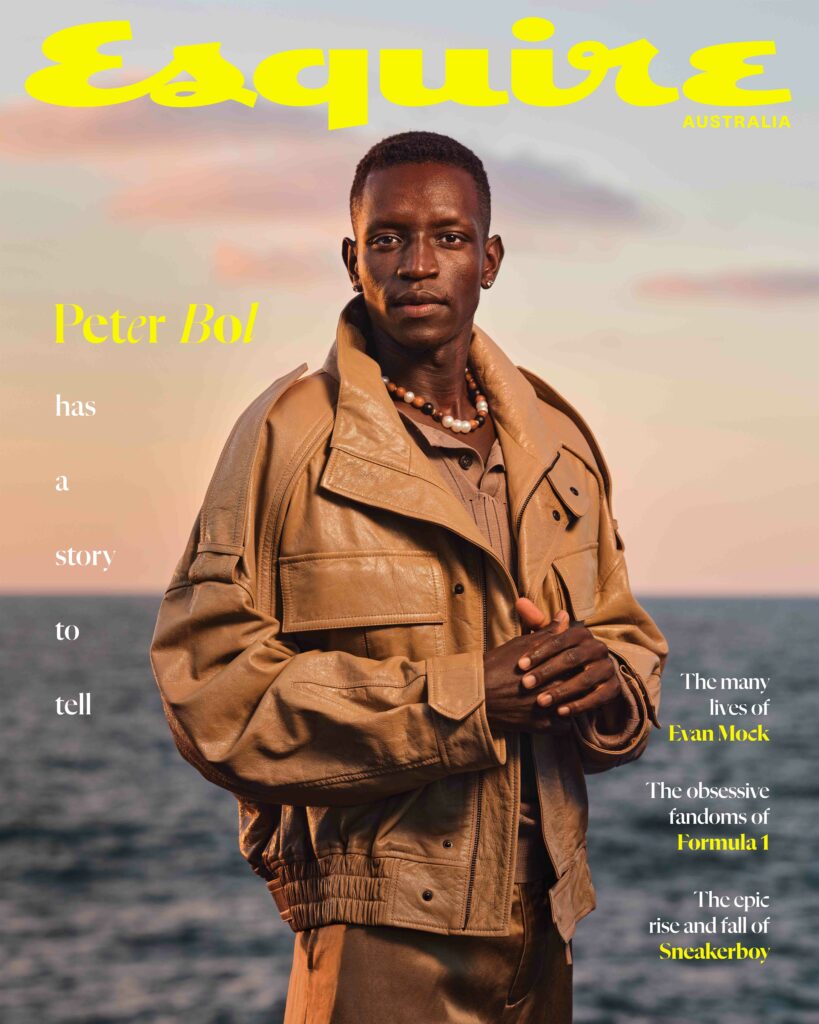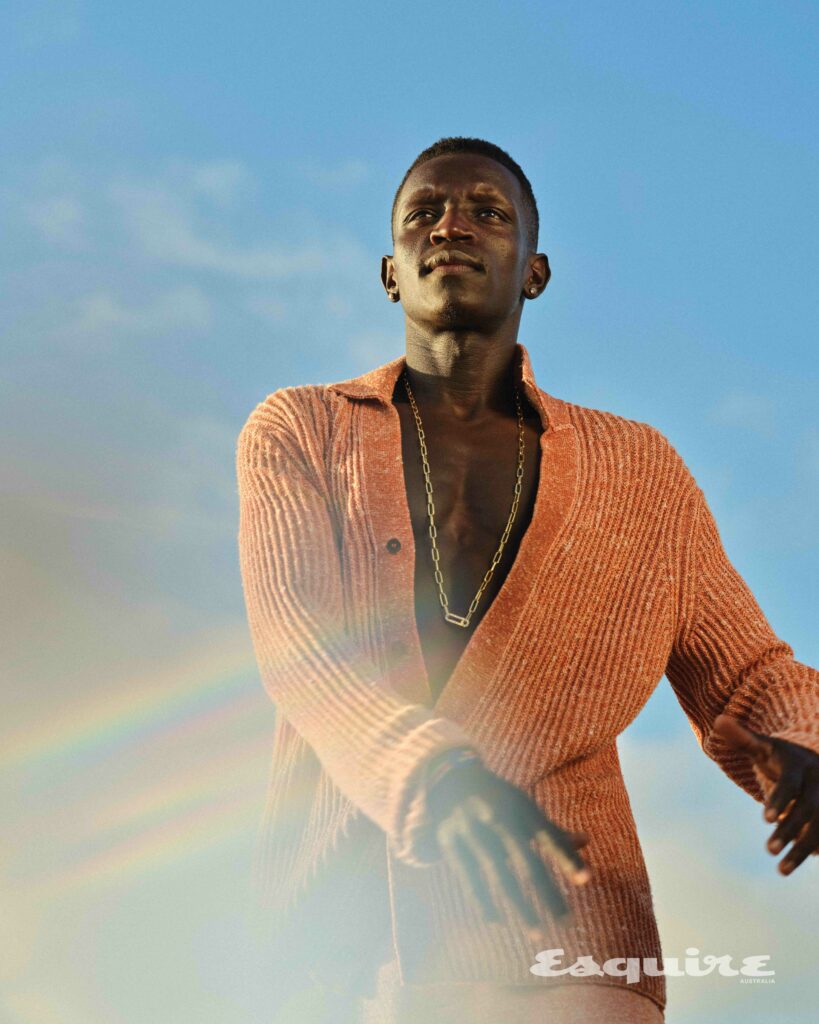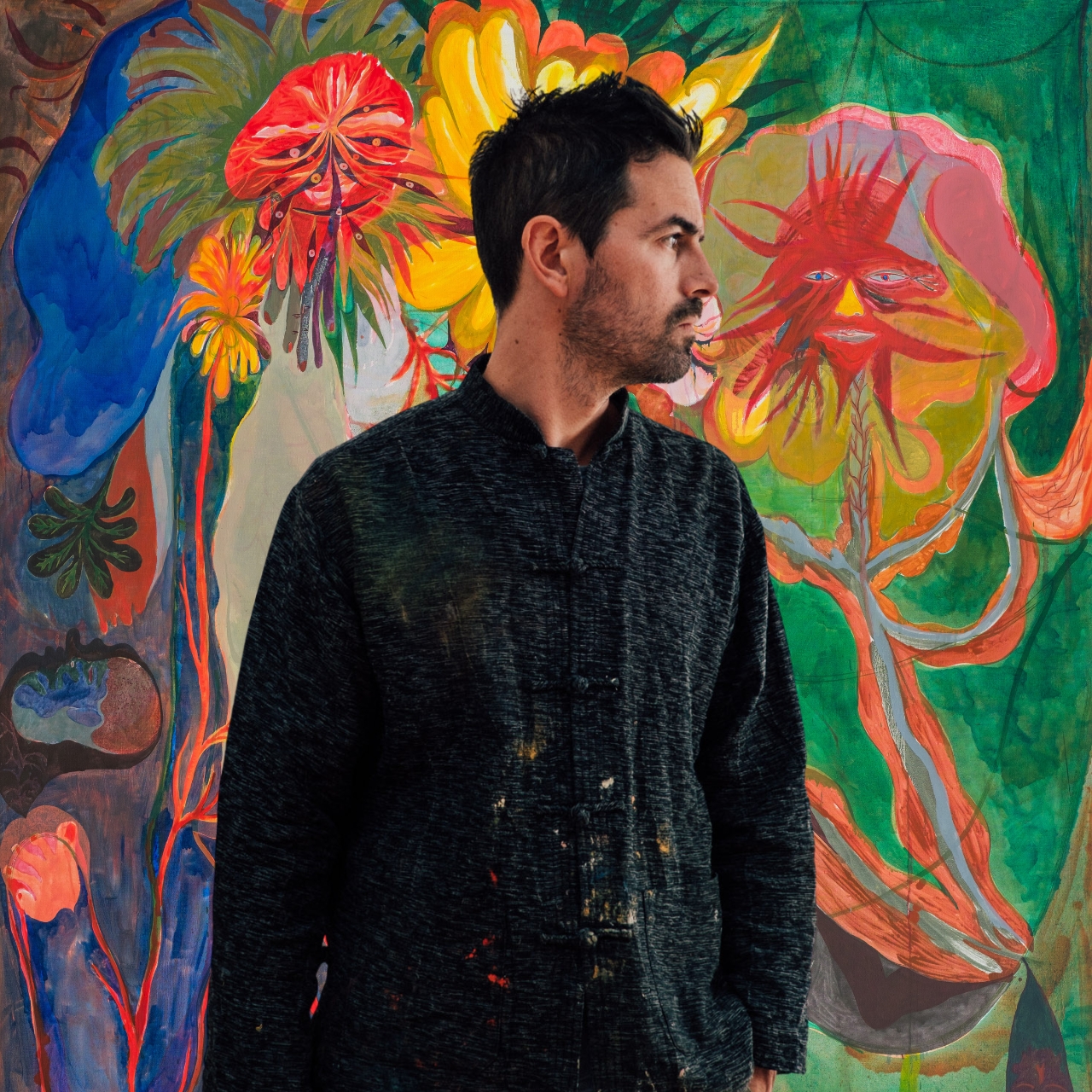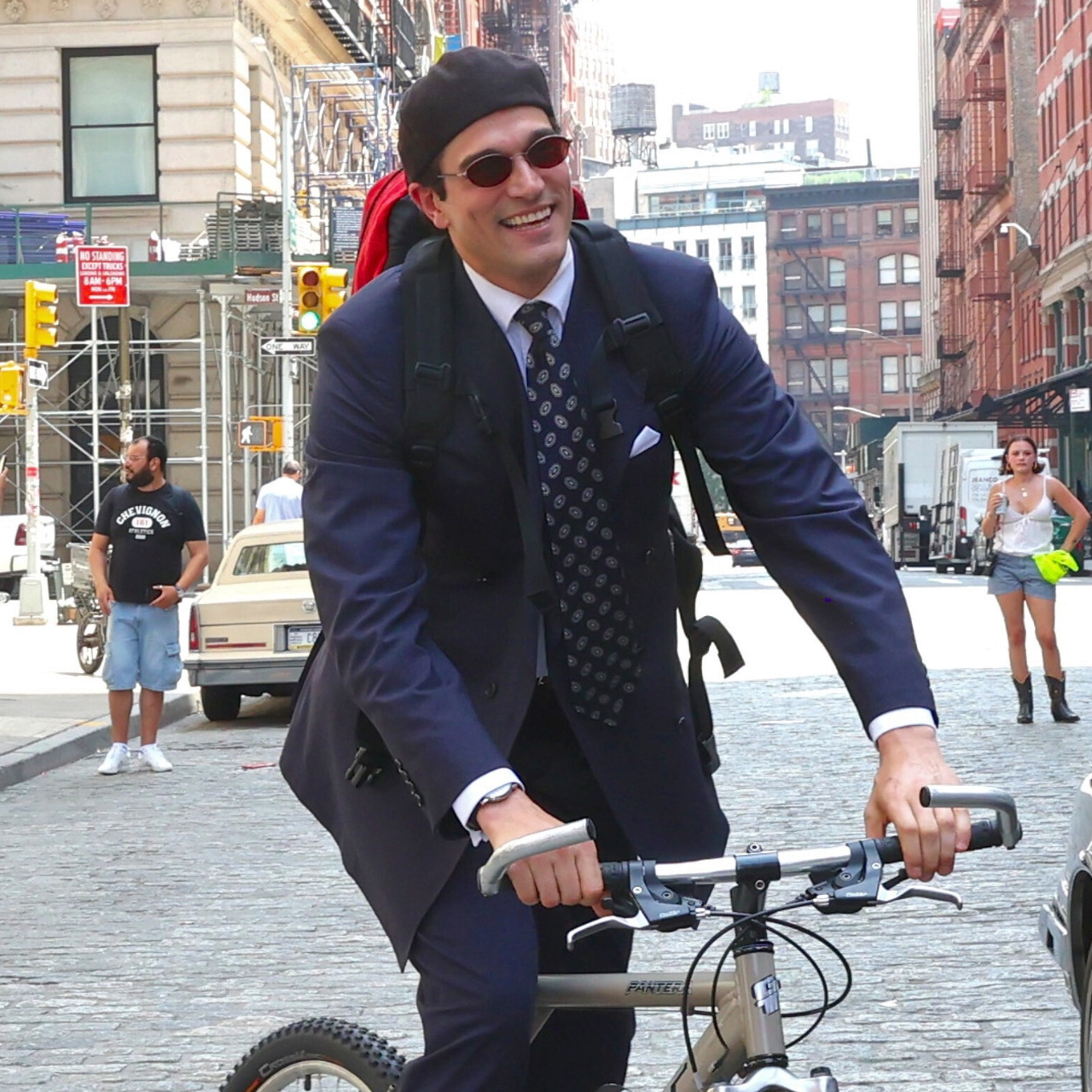On the people and memories that endure: letter from the editor
Esquire’s Editor-in-Chief Christopher Riley reflects on the Olympic spirit of our Winter 2024 cover star Peter Bol, and why shifting culture is more of a marathon than a sprint


I WAS IN THE STANDS at the 2012 London Olympics when Usain Bolt won his second 200m gold medal. Our seats were so high up we needed binoculars, but I can remember thinking Bolt looked superhuman as he flew round the bend, destroying the field with such glorious insouciance it almost seemed unfair. As he approached the finish, the stadium was quiet for the first and only time that afternoon – a hush smothering the crowd as we witnessed history. And then it was over. Months of anticipation; years of hard work: all of it over in 19:32 seconds.
That gold medal was one of eight Bolt would pick up across three Olympic Games, making him the most successful sprinter in the Games’ history. But when we look back on his iconic career, what are the memories that endure? For me, it’s not just his record-breaking times, but the fact Bolt brought us together with his showmanship, making us all feel like we were participating in his greatness. With that contagious smile, Bolt took on the role of heroic performer, and his superpower was making each of us feel like we had front-row seats.
Eight years later, Peter Bol would have a similar impact in Australia at the Tokyo Olympics. Again, history was made, as the Sudanese-Australian broke two national records on his way to becoming the first Australian to reach an 800m final since 1968. The fact he ultimately came up short in the medals, finishing an agonising fourth, didn’t matter. For those two weeks Australia had found a story to get behind: the smiling underdog who pushed the world’s best to their limit. With each race, crossing the finish line as he did with a big grin on his face, Bol went from relative unknown to national favourite.

After the Games, he quickly became a sensation, waking up to thousands of new Instagram followers, and a call from the Prime Minister. Some people got so attached to his story, in fact, they decided to put their own spin on it, with reports spreading that Bol had lived in a refugee camp before coming to Australia at age 10. (He had not.) But when I ask Bol what he remembers most about his career so far, it’s not the medals, the fake news or the broken records he speaks of.
“I can’t tell you how many races I’ve won,” he says, “but I can tell you every single experience I had along the way that included people. I can tell you that in my first Olympic games, one of my favourite athletes, Patty Mills, came up to me, introduced himself and said, ‘Welcome to the team’.”
In other words, it’s the memories – the people – that endure. Like Bolt, Bol’s performance on and off the track, gave us a story we could feel proud of. His gritty, yet joyous, performances didn’t just seem to embody the Olympic spirit, there was something uniquely Australian about it all. We recognised a battler. Later, when Bol was falsely accused of taking performance enhancing drugs, the Australian public didn’t forget their hero. “You build this trust with the country and they’re there to stand for you. They’re there to say, ‘This is bullshit’,” he recalls.
For me and my team, putting together this magazine has felt a lot like our Olympics. At 158 pages long, it’s the longest issue of Esquire Australia so far; packed full of people and ideas that in their own way reflect something about Australia, or the wider world, right now. The issue took us to London, Milan, New York, Sydney and Melbourne, as we explore the female fandoms driving Formula 1 into a new era; the business of breaking records (this time, the Guinness kind); and the story of how Sneakerboy, a former game changer in Australian retail, slowly – and sensationally – crumbled from within. When Chris Kyvetos, one of the original architects behind Sneakerboy, reflects on his legacy with the company, like Bol, it’s the community he built along the way he thinks of most. “There were some amazing people involved and they have all gone on to make marks around the world,” he told Esquire. “I still keep in touch with many of them and they still share the same sentiment that something special happened there between 2013 and 2015.”
When the story is published, what I remember most won’t just be the shocking details that are unearthed about Sneakerboy’s ultimate demise, but the months of research features editor Amy Campbell put into writing it. I can’t tell you the magazine will be as exciting as watching Usain Bolt immortalise himself on the track or Peter Bol win the 800m in Paris, but as we’ve found out, shifting culture is more a marathon than a sprint.
Read our cover story featuring Peter Bol here.
The May/June 2024 issue of Esquire is now on sale. Find your nearest stockist.




















